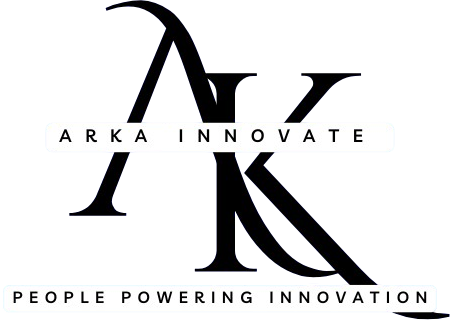Your resume is the first impression you make on potential employers, and a well-crafted one can be the key to landing your dream job.
Skill- based hiring : The future of Talent Acquisition
The traditional methods of talent acquisition—where degrees, job titles, and past experiences dominated hiring decisions—are rapidly evolving. As businesses across industries face a skills gap and technology transforms the job market, skill-based hiring is emerging as the future of talent acquisition. Instead of focusing solely on credentials and qualifications, companies are shifting their emphasis to a candidate’s skills and competencies, ensuring they hire the right talent with the right abilities to meet their business needs. Here’s why skill-based hiring is becoming the future of talent acquisition and how it can transform recruitment processes.
Why Skill-Based Hiring is Gaining Traction
Skill-based hiring is gaining prominence as the future of talent acquisition due to its focus on candidates’ abilities rather than traditional credentials. Here’s an overview of why this approach is transforming hiring practices.
- Bridging the Skills Gap
- Promoting Diversity and Inclusion
- Faster Adaptation to Changing Job Markets
- Cost-Efficient Hiring and Training
Hiring based on skills ensures that candidates are matched with roles where they can excel, leading to better job performance and satisfaction. By evaluating practical competencies, employers can find individuals who are not only qualified but also passionate about their work, which results in higher productivity and engagement.
Skill-based hiring prioritizes a candidate’s specific abilities and competencies over their educational background, job titles, or previous work experience. This approach focuses on evaluating whether candidates possess the hard and soft skills needed to excel in the role, regardless of where or how they acquired those skills.Technical expertise such as programming, data analysis, project management, or software proficiency.

As the job market continues to evolve, skill-based hiring is set to become a dominant approach in talent acquisition. The shift toward hiring for skills rather than credentials reflects the changing nature of work, where practical expertise and adaptability are more important than ever. By focusing on what candidates can do, businesses can build stronger, more diverse, and more productive teams that are ready to meet the challenges of tomorrow.
For job seekers, this trend also offers new opportunities to showcase their talents and break into industries that were previously difficult to access without formal qualifications. Developing in-demand skills and gaining practical experience will be the keys to thriving in a skill-based hiring environment.
Bringing back workforce to office
As businesses around the world shift gears and bring employees back into the office after an extended period of remote work, it’s important for both employers and job seekers to navigate this change with a thoughtful approach. Whether you are an employer managing this transition or a job seeker looking to enter a new work environment, understanding the dynamics of the return-to-office trend is crucial. Here’s what each side needs to know and how they can adapt to this evolving landscape.
The workplace of today needs to reflect the lessons learned during the pandemic. Employers should focus on creating collaborative spaces while also considering employees’ desire for autonomy. More open meeting spaces, personal workstations with social distancing, and upgraded air filtration systems are just some steps to ensure a healthy environment.
For Job Seekers: Adjusting to New Work Expectations
If you’re seeking a new job, it’s essential to understand that many companies are bringing employees back to the office, at least in some capacity. When considering a job, ask about their remote work policies, and be prepared to discuss how you can adapt to a hybrid or in-office setup.
Just as employers need to be flexible, so do job seekers. Demonstrating that you can work efficiently both remotely and in-office can make you a more appealing candidate. Be ready to showcase examples of how you’ve adapted to different working environments in the past.
- Prioritize Employee Well-being
- Communicate Clearly and Frequently
- Build Your In-person Networking Skills
- Understand the New Work Culture
If you’re seeking a new job, it’s essential to understand that many companies are bringing employees back to the office, at least in some capacity. When considering a job, ask about their remote work policies, and be prepared to discuss how you can adapt to a hybrid or in-office setup.
Companies are looking for employees who can thrive in a modern office where digital tools and collaborative work are essential. Job seekers should emphasize their proficiency with communication platforms, project management tools, and their ability to work in teams, whether virtually or in person. Be ready to showcase examples of how you’ve adapted to different working environments in the past.

Job seekers should be prepared for the possibility of shifts in work policies, as companies may continue to adjust based on employee feedback and external factors. Flexibility and a willingness to adapt will make you a more valuable asset to any organization.
The return to office trend marks a significant shift in the way we work, but it’s not without its challenges. Employers must navigate this change with empathy and foresight, while job seekers need to demonstrate their adaptability and readiness for the future of work. With the right approach, both parties can make this transition smooth and successful.
Navigating the Wave of Layoffs: What’s Next?
In today’s rapidly changing job market, layoffs have become a common challenge, leaving many talented professionals seeking new opportunities. While this can be a stressful time, it’s also an opportunity to re-evaluate your career path and leverage resources that can help you land a great job. Recruitment agencies, especially those with specialized industry experience, can play a crucial role in helping you navigate the job search process during these uncertain times. Here’s how you can overcome the challenges of layoffs and secure the right position with the support of expert recruitment agencies.
Job searching after a layoff requires persistence. Keep a daily schedule for your job search activities—applying for jobs, following up with contacts, and reaching out to recruiters. Organizing your job search will help you stay on track and reduce stress in the long run.
The Role of Specialized Recruitment Agencies
The emotional toll of being laid off can be significant, but it’s important to stay positive and focused on your next steps. Take time to process the change, but don’t lose sight of your skills, experiences, and the value you bring to a new employer. A positive mindset will not only help you during interviews but also keep you motivated throughout your job search.
- Industry Expertise Makes the Difference
- Personalized Job Matching
- Guidance on Trends and Skills
- Long-term Career Partnerships
A layoff can be an opportunity to re-evaluate your career trajectory. Use this time to consider what you want from your next role. Are there new industries, skills, or roles that you’ve been curious about? This can be the perfect moment to make a pivot or explore new opportunities that align with your personal and professional growth.
Recruitment agencies with specialized industry experience have a deep understanding of the specific needs and trends in your field. Whether you’re in tech, healthcare, finance, or manufacturing, specialized agencies can connect you with employers who are looking for candidates with your exact skill set. They often have access to job openings that aren’t advertised on public job boards, giving you an inside track to desirable positions.

A specialized recruitment agency will take the time to understand your background, career goals, and strengths. By working closely with recruiters who are experts in your field, you’ll benefit from job recommendations that match not only your skills but also your preferred work environment, company culture, and career aspirations.
Navigating the job market after a layoff can be daunting, but it’s also an opportunity for growth and new beginnings. By staying focused, proactive, and leveraging the expertise of specialized recruitment agencies, you can overcome the challenges and land a job that aligns with your skills and goals. Recruitment agencies with industry-specific knowledge offer a strategic advantage, connecting you to exclusive opportunities and providing the personalized guidance needed to succeed in today’s competitive market.



